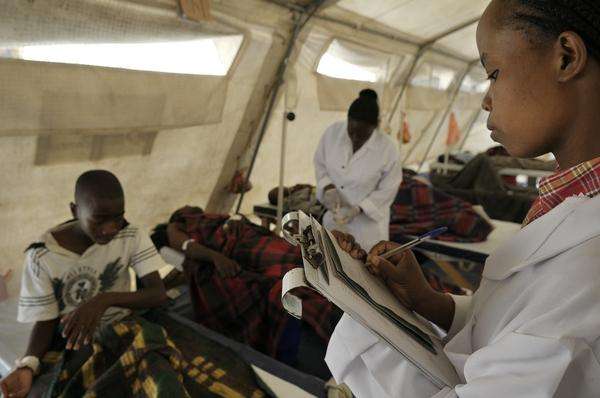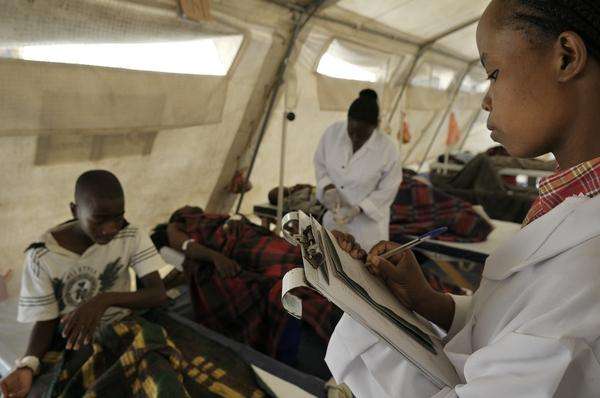New York/Lusaka, Zambia—The largest cholera vaccination campaign ever began today in Zambia’s capital, Lusaka. International medical humanitarian organization Doctors Without Borders/Médecins Sans Frontières (MSF) is working in close collaboration with the Zambian Ministry of Health and the World Health Organization to vaccinate more than half a million people in the next two weeks to curb the outbreak that began in February in the city’s overcrowded township areas. As of April 7, a total of 664 cases and 12 deaths had been reported in Lusaka.
"Lusaka has experienced regular cholera epidemics in the past, but this is the first outbreak since 2010," said Caroline Voûte, MSF emergency coordinator. "With such a long period between outbreaks, the population has little to no acquired immunity to the disease, leaving a ‘blank slate’ for cholera transmission in these densely populated, flood-prone areas."
In Lusaka, around 1.2 million people live in overcrowded informal settlements, which are at the highest risk of cholera each rainy season. This year, the rainy season came late, causing boreholes to dry up and forcing the population to use unsafe shallow wells. When the rains came, floodwaters mixed with overfull pit latrines, creating rivers and lakes of contaminated water that people were forced to wade through. This has created a prime environment for a large-scale cholera outbreak.
The vaccination campaign is targeting 578,000 people. Eight MSF international staff, 19 Zambian Ministry of Health staff, and 1,135 community volunteers from Lusaka will carry out the campaign at 39 sites in four of the most-affected townships of Lusaka: Kanyama, Bauleni, George, and Chawama.
In addition to the campaign, the Ministry of Health will continue to care for patients in cholera treatment centers in the capital, and is working to improve sanitation and hygiene conditions in the informal settlements by disinfecting homes, carrying out health education, and distributing chlorine solution.
"While vaccinating against cholera can be effective in halting an epidemic, it is not the only solution," Voûte said. "It should always be combined with treatment of patients and health education. At the same time, water, sanitation, and hygiene services must be ensured to reduce the risk of future epidemics."
About the Oral Cholera Vaccine
Oral cholera vaccines are emerging as a new tool for cholera control and have been used in past years to successfully prevent outbreaks in complex emergencies, to curb cholera epidemics, or to reduce burden in countries in which cholera is endemic. The vaccine is typically recommended to be administered in two doses. However, due to the limited number of vaccines available globally and in order to curb the Lusaka outbreak as quickly as possible, a single dose delivered to twice as many people will be more efficient to rapidly maximize "herd immunity."
The last cholera outbreak in Lusaka was in 2010. Between 2003 and 2010, 30,000 people were affected by the disease and 860 lost their lives.
MSF began working in Zambia in 1999 with a reproductive health program in Luwingo District, which it handed over to the Ministry of Health in 2013; and cholera response efforts, which it ran alongside the Ministry of Health for seven years. An MSF team arrived in March 2016 to assist the Ministry of Health and the World Health Organization in controlling the ongoing cholera epidemic and implementing this mass cholera vaccination campaign.





